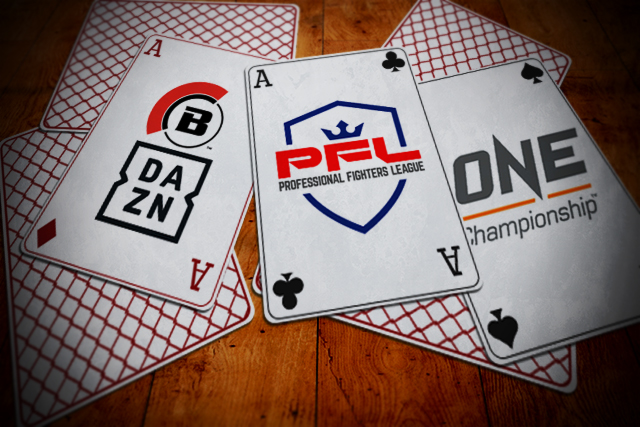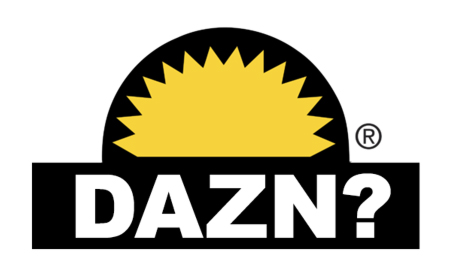
Ben
Duffy/Sherdog.com illustration
Editor’s note: The views and opinions expressed below are those of the author and do not necessarily reflect the views of Sherdog.com, its affiliates and sponsors or its parent company, Evolve Media.
Professional Fighters League is nearly done with its initial round of playoffs. After PFL 10 on Saturday, where the middleweight and welterweight divisions will have their quarterfinals and semifinals, all of the finalists for PFL’s $1 million grand prizes will be locked and loaded for the New Year’s Eve event at Madison Square Garden.
Advertisement
I haven’t been alone in that sentiment. Watching PFL’s events this summer and discussing them with friends who are serious MMA fans as well as the people with whom I interact on a professional level, the reaction has been the same: some version of “Man, these fights are awesome!” followed by a pause, and then some version of “I wonder if they’ll be around to hand out those million-dollar prizes,” followed by uneasy laughter.
We might be forgiven for thinking along those lines, given that PFL
rose from the ashes of World Series of Fighting, one of the most
transparent hustles in the history of major MMA promotion, but it
was more than that. The kind of gallows humor that can find a
chuckle in the idea of fighters sweating and bleeding for our
entertainment only to have their paychecks bounce is a learned
trait, and we’ve learned through the example of organizations far
more established than PFL -- hello, K-1.
It’s worth noting that the people I’m talking about here are not wishing ill on PFL. They’re not Ultimate Fighting Championship shills crying death to any promotion that dares to try and challenge UFC hegemony. They aren’t watch-the-world-burn types either when it comes to mixed martial arts, hoping to point and laugh at failure; the industry folks in particular are, by and large, talented people doing a lot of hard work for little money because they love this sport and want to make it better in some way. Yet almost unanimously, they have greeted PFL with the same blend of emotions: elation mixed with black humor and a sneaking suspicion that it’s too good to last.
In other news, DAZN has completed its grand entrance into the North American market, with all the subtlety of Eric Esch cannonballing into a kiddie pool. Though the over-the-top streaming service has apparently existed in Europe and Japan for two years, the first I heard of it even as a fairly well-informed consumer was in June, when Bellator announced a broadcast partnership with the upstart company. I didn’t even know how to say it for the first two weeks:

It’s pronounced “Da ZONE,” of course, and this week DAZN pronounced itself a major, major force in combat sports broadcasting with a reported five-year, $365 million deal to show Saul “Canelo” Alvarez’s fights. This is in addition to the similar deal already in place for British heavyweight champ Anthony Joshua, essentially sewing up the two biggest stars in the sport who won’t be over 40 by the end of this year.
To which I say: Huh. On the one hand, it’s interesting that such a new player is making such a bold play just as HBO -- and, according to rumor, at least one other major outlet -- divorces itself from boxing. On the other hand, DAZN is involved with mixed martial arts, and anytime a new entity shows up in the MMA space flush with cash and promise, my first reaction is to recoil just a bit. I’ve learned through hard experience that things which appear too good to be true in mixed martial arts usually turn out to be just that. The UFC’s trophy case, and the dumpster of history, are full of examples, in many cases driven by influxes of capital from companies that saw combat sports as an investment rather than a passion. For years, that was a point of distinction for the UFC: Whatever else could be said about them, the Fertittas and Dana White legitimately loved the fight game, and that set them apart from the conglomerates that saw dollar signs in a booming sport. Of course, that’s no longer the case, and the difference in how the UFC has been run since its 2016 sale has been stark.
Last example. If you had asked me a week ago what I thought was the second healthiest MMA promotion in the world, or the one most likely to still be a going concern five years from now, it’s quite possible my answer would have been One Championship. Like PFL, One is an organization whose product I enjoy. It isn’t a perfect promotion; One’s rule set is confusing and amorphous and its propensity for acting as both promoter and commission, reversing fight results after the fact, is hugely problematic. But the events are generally excellent entertainment, I’m a fan of the ongoing diversification -- in which a single card will feature MMA, kickboxing, muay Thai and Western boxing -- and its production values are stellar. A prolific schedule, logical expansion and quality product all seemed like earmarks of a healthy business.
My impression of One as an organization that truly had its act together, a juggernaut even, was echoed by Dana White, who referred to One as “a monster” in his testimony in the UFC’s antitrust suit. I shouldn’t have been surprised, then, when this week a fine mixed martial arts news outlet released a blow-by-blow analysis of One’s financial situation. There’s no way I can do proper service to John Nash’s excellent work here, other than to say: One isn’t a dead duck, but neither is it the well-oiled machine it purports to be, and you should read the article.
What’s the point of all this? Only my observation that optimism is hard to come by in this space. I’ve never understood those who root for or against the UFC as an organization. I know what I want this sport to look like one day: the best fighters pitted against the best fighters on accessible, reasonably-priced broadcast platforms, with a far higher percentage of the revenue going to the fighters than currently does. Whether it’s the UFC that accomplishes that or some other organization is irrelevant to me, but I wish I felt more optimistic that we’re even moving in the right direction.
Related Articles







